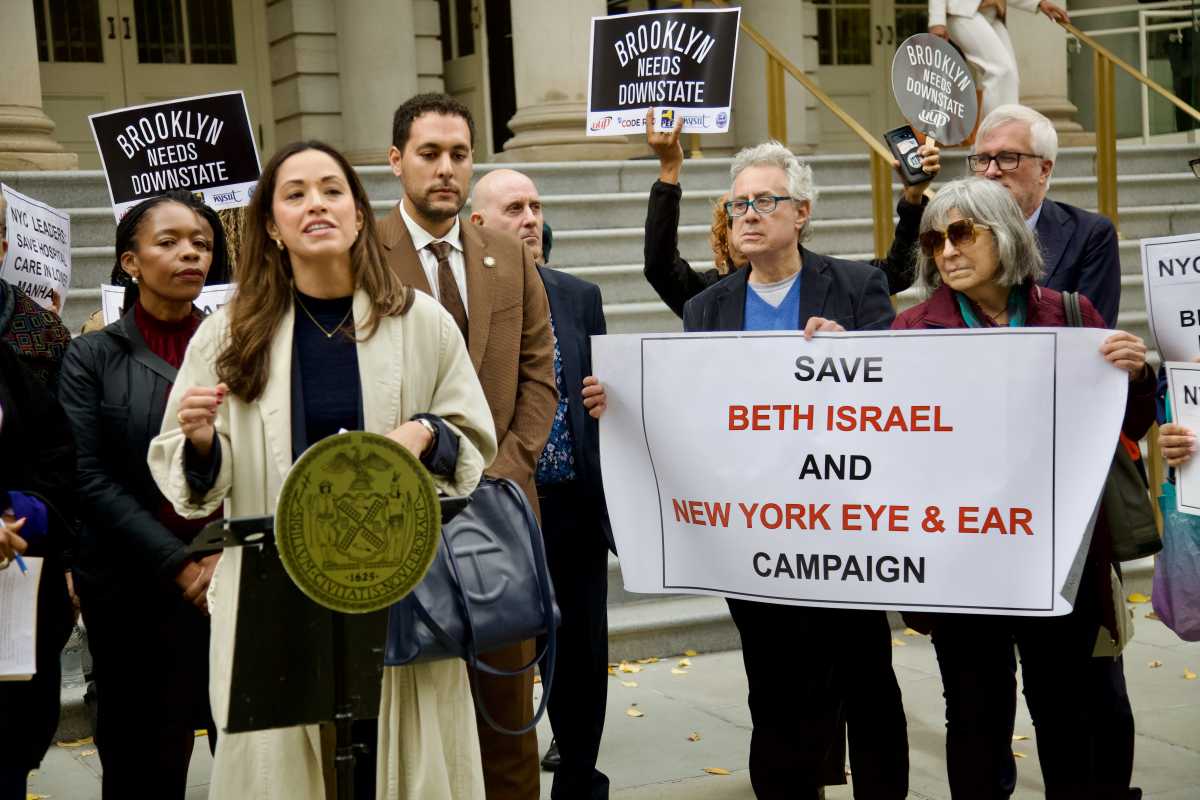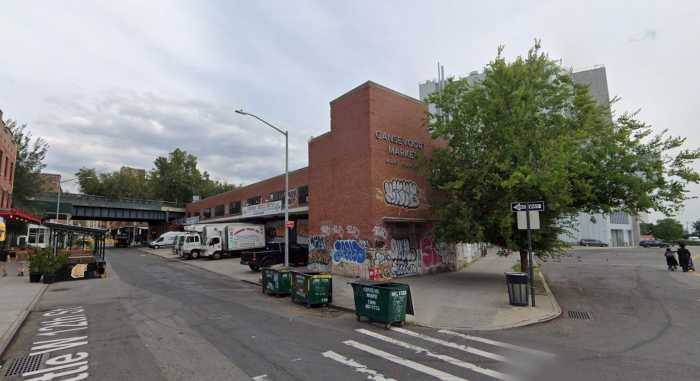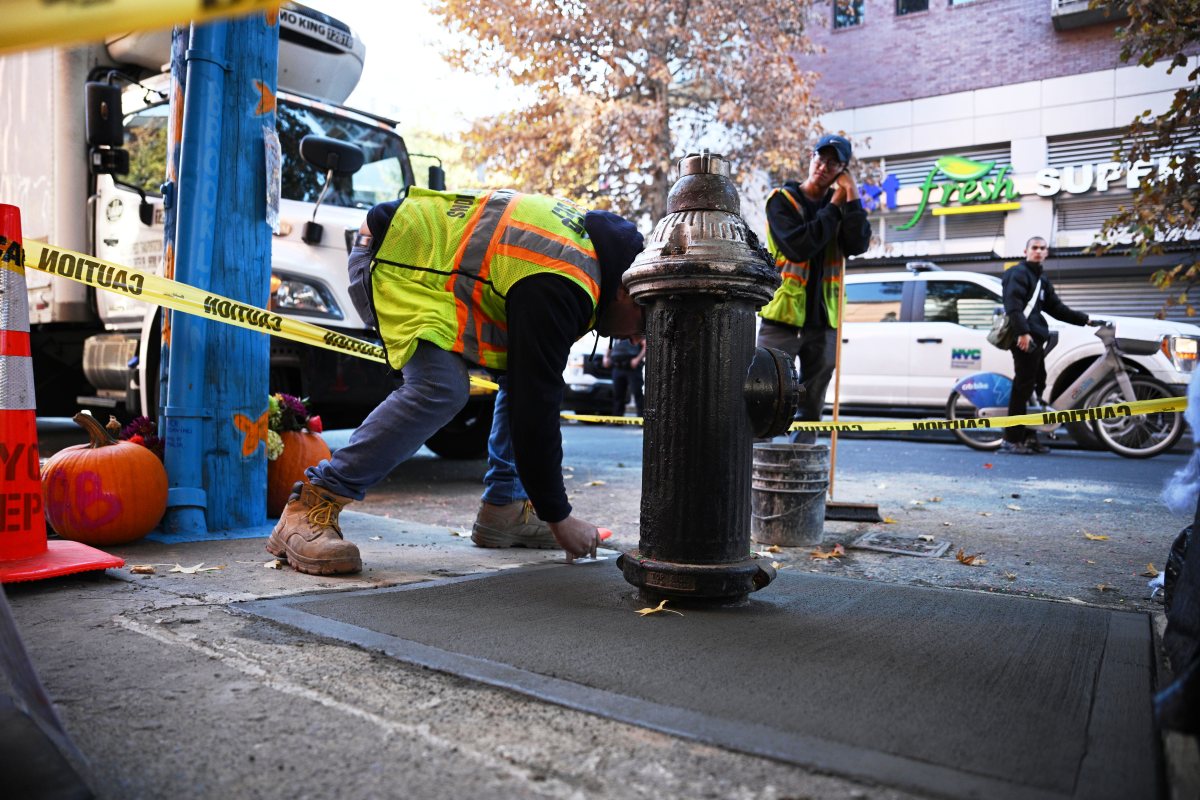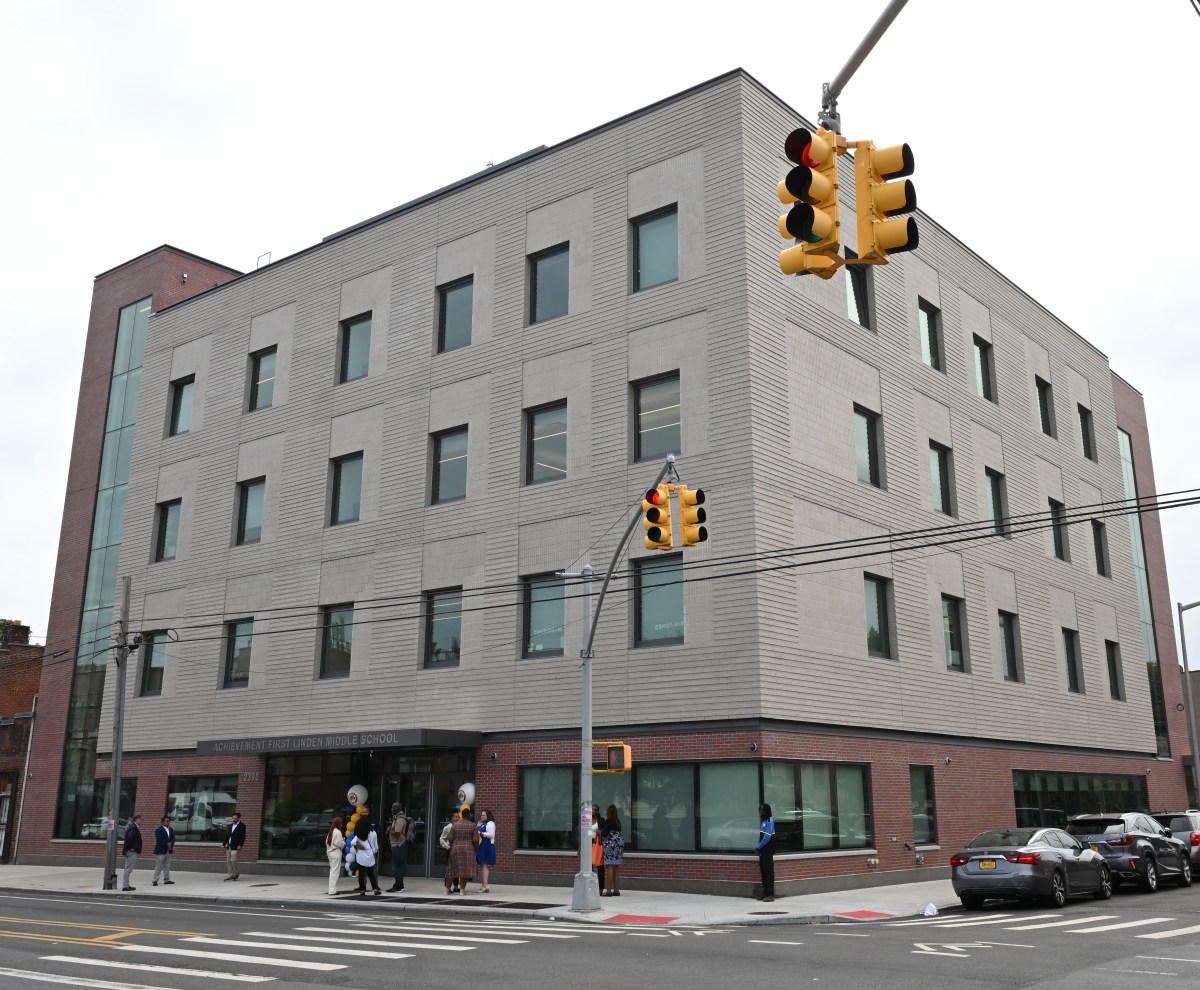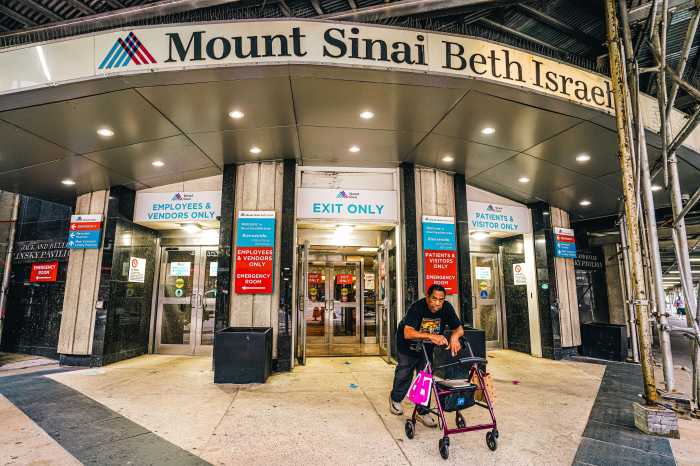City Council members rallied on Tuesday at City Hall behind a plan to give community members more say in the process leading up to a local hospital closure.
Council Hospital Committee Chair Mercedes Narcisse and Health Committee Chair Lynn Schulman, among others, gathered with advocates aiming to stop the pending closures of both Mount Sinai Beth Israel in Manhattan and SUNY Downstate in Brooklyn.
The rally took place before a Council hearing examining the impact of hospital closures in which the Council advanced a resolution calling on Gov. Kathy Hochul to pass a bill that would require additional levels of public notice and engagement when a general hospital seeks to close entirely or reduce maternity, mental health or substance use care.
“Today we stand united, raising our voices against proposals that would rob neighborhoods of essential healthcare services, including the pending closure of Mount Sinai Beth Israel in Manhattan,” said Narcisse at the rally.
The Council resolution cites research that among the 40 hospitals that have closed across the state from 1997 to 2018, 15 of them were in New York City. The issue of hospital closures has risen to the fore over the past year as advocates and healthcare unions have waged pitched battles against the closure of both Mount Sinai Beth Israel, which the state Health Department agreed to in July, and SUNY Downstate, which the state university system initially proposed reducing early this year before it temporarily got a boost in funding to keep it afloat another year.
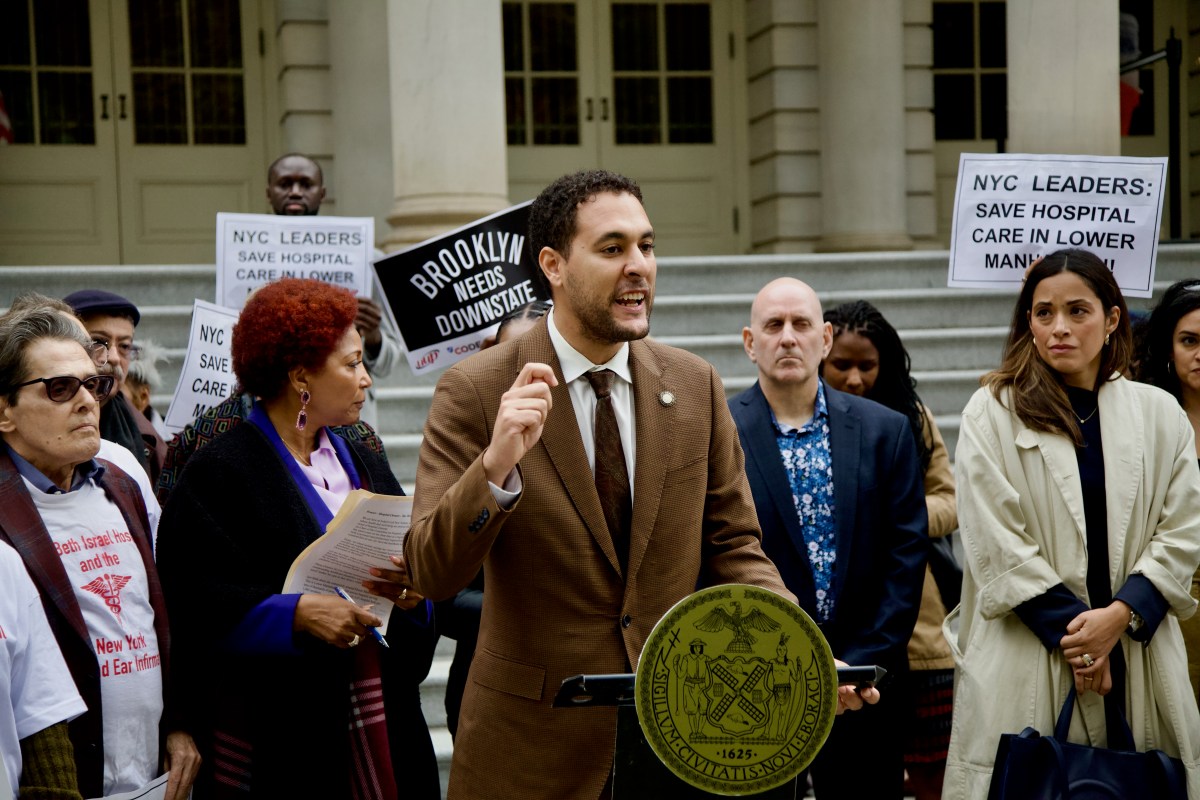
Advocates pointed out that the closure of either hospital would have immediate and long-term impacts on health equity and access to care in their local communities.
SUNY Downstate is a safety-net hospital that provides care to all patients regardless of insurance status and has the only kidney transplant program in Brooklyn, and Mount Sinai Beth Israel primarily treats lower-income patients.
“This closure would devastate the community, especially our neighbors, our friends, our families who are the most vulnerable,” said Dr. Kimberly Murdaugh, a representative of the Save Beth Israel campaign who trained at the facility. “What happens next is going to serve as an example, not to just Manhattan, but to their whole country and to the world about what New York stands for and how we care about the people who live here.”
For Mount Sinai Beth Israel, the advocates say that the surrounding hospitals such as Bellevue or NYU Langone Health will not have the capacity or resources to take on the extra patients after Beth Israel closes.
Sommer Omar, an attorney representing advocates’ bid to stop the Beth Israel closure, cited state health department data that both of these nearby hospitals already had occupancy rates over 100%, as of April 2024.
“There is no credible plan in the [DOH’s] own administrative record for either one of these facilities to be able to suddenly expand their physical infrastructure, staffing capacity and resources to be able to absorb the more than 60,000 patients who visit Beth Israel’s emergency department annually,” she said during the Council’s oversight hearing.
Advocates launched a lawsuit in August that resulted in a temporary restraining order which has delayed the hospital’s shutdown.
As a policy fix for future closures, the Council is getting behind a state bill that proposes to address” gaps in the state’s review of proposed hospital and hospital unit closures.” The bill would require public disclosure of hospital closing plans, a schedule of advance notice of closures based on the reduction in health services, a community forum to be held in advance of the closure, and a closure plan that addresses community concerns.
“The state Health Department, whatever their intentions, do not have adequate state law behind them to make the review of a hospital closure or hospital downsizing sufficiently thorough, sufficiently inclusive of the community, and sufficiently concerned about equity issues,” said Lower Manhattan state Sen. Brian Kavanagh.
The bill passed both houses of the legislature this past session and is waiting to be signed by the governor.



